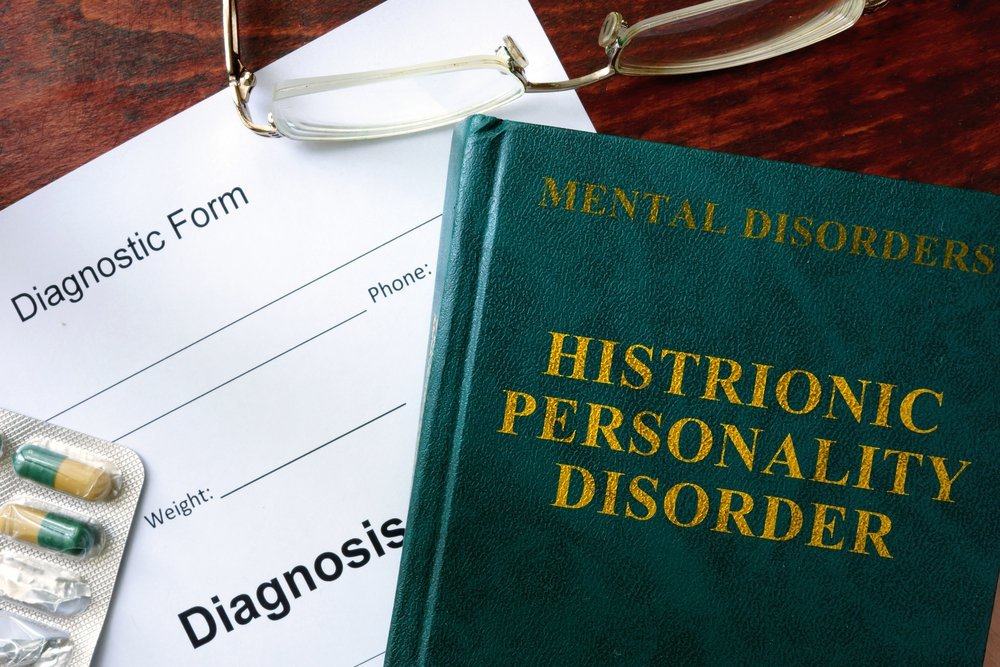Contents:
- Medical Video: What's Histrionic Personality Disorder? Mental Health treatment, help & therapy with Kati Morton
- What is histrionic behavior disorder?
- Symptoms of histrionic behavior abnormalities
- Causes of histrionic behavior abnormalities
- Can this disorder be cured?
Medical Video: What's Histrionic Personality Disorder? Mental Health treatment, help & therapy with Kati Morton
In your life, surely you have met someone who is very happy to get attention from the people around him. He will also do all kinds of ways so that he remains the center of attention. It turns out that this behavior can be a form of deviation. The person may not realize that he has a behavioral disorder. Behavioral abnormalities that attention seekers might suffer from are known in the world of mental health in the term histrionic.
What is histrionic behavior disorder?
Histrionic behavior disorder is a personality disorder that causes sufferers to have difficulty understanding their own image. Histrionic sufferers tend to need recognition and praise from others as a benchmark for judging themselves. As a result, the person becomes thirsty for attention. He will also do various ways so that the existence or influence is recognized by others, for example by being dramatic or excessive.
Psychologists agree that histrionic behavioral abnormalities are not a serious or dangerous disorder. Histrionic sufferers are usually good at socializing and building relationships with new people. However, in some cases, acute histrionic sufferers can experience depression and delusions. In addition, various complications caused by histrionic behavioral abnormalities, for example in the social and professional spheres, will make it difficult for sufferers to experience normal daily functions. Histrionic patients should immediately see a psychologist or psychiatrist to prevent the development of this disorder.
Symptoms of histrionic behavior abnormalities
Apart from looking for attention, people with histrionic behavioral disorders will also show other symptoms. So if you or someone you know has the following signs and symptoms, don't hesitate to contact a mental health professional.
- Feel uncomfortable when he is not the center of attention
- Tend to dress or behave sensually and provocatively around other people
- Emotions that change drastically and quickly
- Act dramatically as if acting in front of an audience, often with excessive expression and emotion
- His speech style is made up with a tone and volume that is loud enough for others to realize when he is talking
- Very concerned about physical appearance and not infrequently to use his appearance to attract attention
- Demonstrate selfishness and care less about others
- Always seek recognition, approval, and affirmation from others
- Can not accept input, criticism, and differences of opinion well
- Act without thinking first
- Make a hasty decision
- Very easily influenced, persuaded, and seduced by others
- Get angry and stressed quickly
- Get bored quickly with routines and circumstances so histrionic sufferers are often compelled to look for hobbies, jobs, lovers, or new social environments without completing or ignoring the old ones
- Often blame other people or situations when they feel like a failure or make a mistake
- Exaggerating the seriousness or intensity of relationships that are woven with other people
- Threaten to run away, hurt yourself, or commit suicide in order to get attention and sympathy from others
Causes of histrionic behavior abnormalities
Until now, the exact cause of a histrionic behavior disorder in a person has not been found. However, the researchers observed that this personality disorder can arise either because of biological factors or because of environmental factors. Biological factors are usually influenced by genetics. If in a person's family there is a history of histrionic behavioral abnormalities, he also becomes more at risk of suffering from the disorder.
Meanwhile, the role of the environment is usually easier to observe in the emergence of histrionic behavioral abnormalities. The symptoms shown by histrionic behavioral abnormalities can be studied and imitated by a child from the person who raised him like a parent or caregiver. In addition, children can also show histrionic symptoms if they do not get enough attention from their parents, even though their parents do not suffer from histrionic behavioral abnormalities. This will get worse if the parent or guardian cannot discipline or control the behavior of the attention-seeking child.
Can this disorder be cured?
Histrionic behavioral abnormalities are difficult to cure because usually the sufferer will refuse healing. He will not admit easily that he has a behavioral disorder, not just looking for attention. However, usually the more histrionic patients grow up, the more they can control the symptoms.
The recommended treatment for people with histrionic behavior disorders is usually psychotherapy. This psychotherapy generally runs for a long period of time until a histrionic sufferer can judge himself without recognition or affirmation from others. If people with this behavioral disorder suffer from depression or anxiety, psychologists will usually refer to psychiatrists who will prescribe sedatives or antidepressants.
READ ALSO:
- Like Hoarding Used Goods? It could be a mental disorder
- 7 Things Parents Must Do for Child Mental Health
- Effects of Color on the Pattern of Human Behavior












